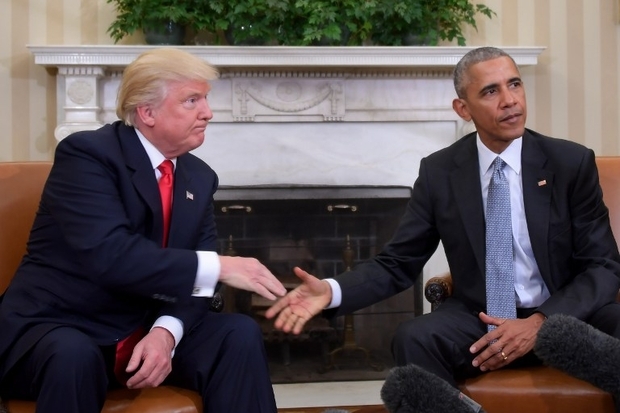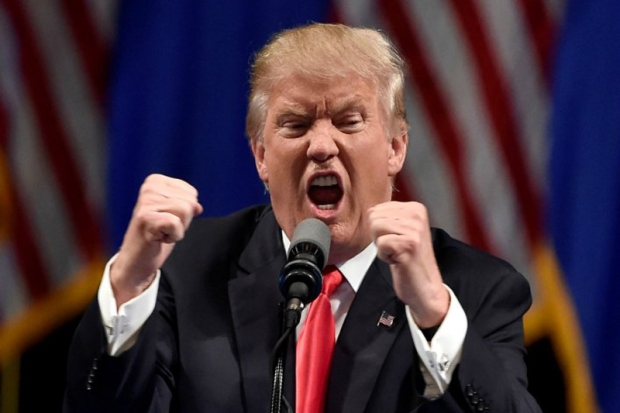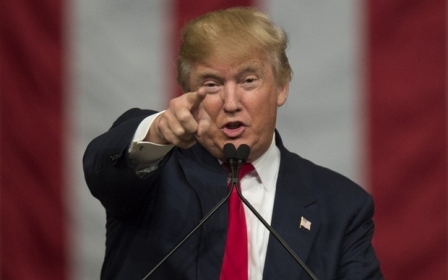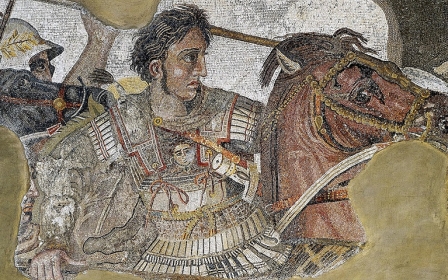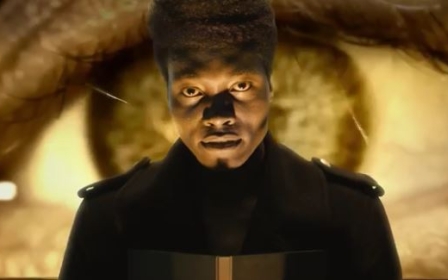Donald Trump, democracy is not just something you pick off the sidewalk
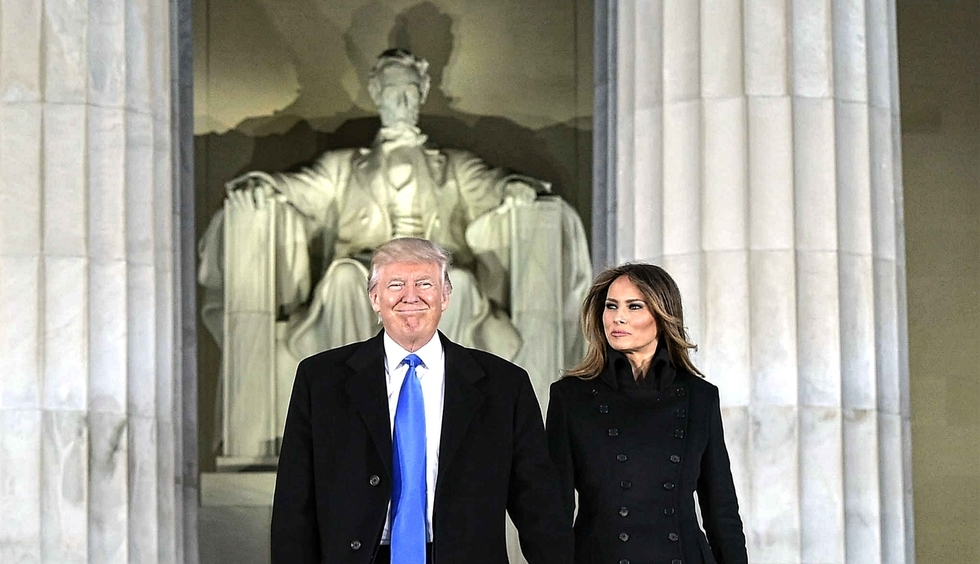
Last November, the Americans elected a person who is not worthy of the office of the presidency. There is not much dispute about this, neither within liberal political circles nor within conservative circles; neither within America nor outside it.
Donald Trump’s problem is not that he came into politics, and politics most esteemed positions, from within the realm of business and entertainment. The relationship between the circles of politics and the circles of finance and the media industry in the United States are old, deep rooted and quite close.
The good thing about democracy is that it affords people the opportunity, within a few years, to reconsider and rectify the mistake they have made
No, the problem is that the man seems to be superficial, lacking in the ability to comprehend sophisticated matters; that he deals with major political issues with immediate spontaneity.
Furthermore, he regards the process of managing the biggest and most influential country in the world as one and the same with managing a personal estate.
During the months of his election campaign, the president-elect did not show sufficient awareness of the dangers of linguistic adventures when embarked upon by the president of the United States of America.
Over the past year, Trump has made one shocking remark after the other. Some of his outrageous utterances could potentially ignite a civil war or an international conflict. Yet, he never seems bothered.
Yet, the good thing about democracy is that it affords people the opportunity, within a few years, to reconsider and rectify the mistake they have made. They may unseat their rulers and replace them with others who are deemed to be more trustworthy.
READ: Obama's true legacy: Trump
But in an undemocratic system, the reins of power may be taken by murderers, by criminals and by silly people, such as the current president of Egypt or the Syrian president. People cannot even contemplate bringing them down without starting a destructive civil war.
The relationship between the democratic system and the modern state is more sophisticated and warrants more contemplation than a simple comparison with a despotic system of governance.
Perhaps the case of Trump is an important example of this relationship that has continued to preoccupy political scientists and historians since consciousness of the nature of the modern state started crystallising.
Anti-establishment views helped
Since emerging in the political arena as a Republican Party presidential candidate, Trump has exhibited an acute tendency toward peculiarity and aberration from conventional US government rules.
He repeatedly denounced the manner in which US affairs are conducted in Washington, without making much distinction between the Democratic and the Republican parties. Furthermore, he promised to “drain the swamp of Washington”.
In addition to presenting himself as an outsider to the ruling establishment, Trump adopted some controversial policies, which may be described as opposed to Washington’s political consensus.
Anti-establishment stances and his weird and extraordinary promises played a tangible role in Trump’s surprising electoral victory
He completely disregarded charges of racism that were levelled against him. He also spoke in vulgar language against Muslims, Mexicans and blacks and promised to adopt policies that would bar Muslims from entering the United States, to build a wall along the borders with Mexico whose cost would be paid by the Mexican government and to move the US embassy in Israel to the city of Jerusalem.
READ: Are Trump and Iran heading for a bust-up?
Even the allies of the United States were not spared from Trump’s denunciations. He expressed his conviction that NATO was now part of the past and that the United States, under his leadership, would force its European allies to pay for the cost of defending them.
Trump’s most consensus-breaking stance was represented by the extremely positive and amicable messages he kept sending to Russia and its president. Irrespective of who is responsible for such language and such promises, it is certain that these anti-establishment stances and his weird and extraordinary promises played a tangible role in Trump’s surprising electoral victory.
Why Trump's appointees disagree
But what happened following Trump’s success in winning the presidency seemed to bear little connection with Trump’s language and his election promises.
The individuals chosen by the president-elect to fill the principal positions in his administration came almost entirely from traditional political, military or financial institutions. They turned out to be top business and finance people or former army generals or state governors and congressmen. Very few of those nominated to take positions in the Trump administration could be described as non-establishment personalities.
The administration will streamline its policies to become consistent with American values and norms
When congressional hearing sessions opened after the end-of-year recess, the testimonies of Trump’s nominees did not necessarily conform with the election promises of the president-elect.
The Trump administration had not yet taken hold of the reins of power when his nominees for the principal positions - such as justice, defence and foreign affairs - disavowed many of the policies adopted by him during the election campaign.
They spoke before the special congressional committee cautiously, using the language of responsible statesmen who cared for the interests and traditional values of the American state.
The state is alive and well
But how can one explain such a shift occurring within a very short period between the presidential election victory and taking office?
The modern state was born during the 17th and 18th centuries as a central institution of governance with solid powers. During the 19th and 20th centuries the state grew extremely powerful and hegemonic, thanks to advances in communication, control, reconnaissance and record-keeping.
The state itself is a living entity; it retains a conscience and a set of traditions and values
Democracy does not strip the state of its sources of power and control but seeks to rationalise it and render it more responsive to the aspirations and needs of the people.
The democratic system provides sufficient room for people to express anger and pleasure, to talk freely, on regular occasions, about what they deem to be right and what they deem to be harmful. Furthermore, it obligates state institutions to dedicate their capabilities and expertise to the service of the agenda that earned people’s confidence.
READ: The odd couple steering Middle East policy in Trump's inner circle
In addition, there are other areas of freedom that enable the people, social organisations and the media to observe and critique the process of governing during the years that separate one election from another.
However, the relationship between the democratic process and state institutions is not a one-sided relationship. The state is not a passive institution that receives, listens and implements in an automatic fashion. Nor is it a blank entity that is inherited by the elected government upon delivery of the reins of power and is then bequeathed to whoever comes afterwards when the incumbent departs.
The state itself is a living entity; it retains a conscience and a set of traditions and values; it has its own conception of its interests and how to maintain such interests.
Don't discard the norm
More importantly, the state is an entity capable of self-regeneration, and consequently the regeneration of values, traditions and interests.
No matter how sizeable their election victory happens to be, elected administrations cannot afford to clash with the state’s norms, values and interests
Just as the democratic system rationalises the state and renders it more sensitive to the will of the people, the state restrains and controls the wildness of elected rulers and brings them closer to its established norms and values and to its own conception of what is deemed to be supreme interests.
The Trump administration may, for instance, announce its determination to improve relation with Russia, just as the Obama administration did in 2009.
However, Trump cannot concede America’s vital interests in Europe in order to achieve his goal. Clearly, there is nothing new in Trump’s view of China, which he considers to be a threat to the United States.
This is exactly the same policy that started crystallising during the second term of George W Bush and throughout the reign of Barak Obama. Today, the United States surrounds China with approximately 200 military bases and facility points. What Trump can do is adopt a slightly different approach than Obama’s in dealing with China.
READ: Peace in Libya? One man Donald Trump can't ignore
The modern state in its Western democratic model is not something you pick up on the sidewalk. It is a deep-rooted set of institutions.
No matter how big their election victory happens to be, elected administrations cannot afford to clash with the state’s norms, values and interests.
This applies to the Trump government as much as it applied to the governments that preceded it.
- Basheer Nafi is a senior research fellow at the Al Jazeera Centre for Studies.
The views expressed in this article belong to the author and do not necessarily reflect the editorial policy of Middle East Eye.
Photo: Donald Trump attends the Lincoln Memorial in Washington on the evening before his inauguration in Janaury 2017 (AFP)
New MEE newsletter: Jerusalem Dispatch
Sign up to get the latest insights and analysis on Israel-Palestine, alongside Turkey Unpacked and other MEE newsletters
Middle East Eye delivers independent and unrivalled coverage and analysis of the Middle East, North Africa and beyond. To learn more about republishing this content and the associated fees, please fill out this form. More about MEE can be found here.



